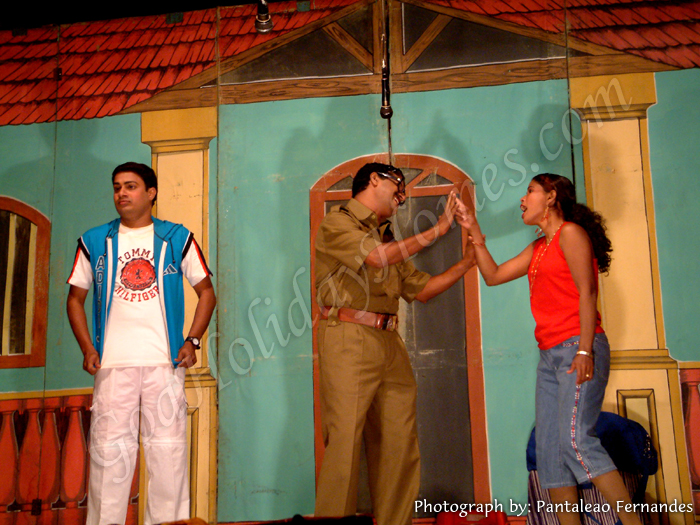Tiatr - Traditional Theatre in Goa
Tiatr is an interesting traditional Goan performance in Goa that ivolves 6 or 7 acts called Podd'dde, which are of short duration of around 15 minutes.
"Konkani tiatr" popular for its high entertainment value, is a dramatic art form unique to Goa. Performed in regular, commercial shows on stage it is a Konkani play that is combined with songs which usually runs to packed houses and is eagerly awaited.
A tiatr that lasts for about two to three hours usually has songs and 7 acts of roughly 15 minutes duration each and has elaborate sets and professional lighting effects. The songs sung in between were actually meant to fill the gap between the acts however as they are supported by a Western-style band today many people go to see the songs rather than the main play. They are usually independent of the main theme and are based on controversial, current and local issues.
The tiatr theater form was introduced by Lucasinho Ribeiro from the Assagao village in Bardez who went to Mumbai when he was 27 in 1890 and got a job with the Italian Opera Company. He soon left the job and by translating an Italian Opera word by word he created 'Italian Burgo' the first ever Konkani tiatr. On January 1, 1894 the first performance of the tiatr was held at his native village in Goa.
On April 17, 1892 with four of his friends as actors at Mumbai's New Alfred Theatre, Ribeiro directed the first performance, which was a big success. It spread in Goa after January 1, 1894 when he had the first performance in the state at his native village.
After this many drama groups were formed in Goa and Mumbai and many writers wrote plays especially for tiatr. Ribeiro the creator of Konkani tiatr mostly translated English play into Konkani but Joao Agostinho Fernandes who wrote 27 Konkani tiatrs got the title of Father of Konkani Tiatr as in the first half of the 20th century he put his drama from on a firm footing.
Hindus have a drama form known as "Konkani Natak" that is more in line with Marathi theatre because Konkani tiatr is usually associated with Christians of Goa.
Traditional drama forms such as "zagor" and "khell" were present in Goa before tiatr was invented. These musical plays with an all male cast that were performed in an open ground in villages were an essential rural entertainment. There are two forms of Zagor performed by the Hindu Perani community and the Christian Gawda community. The one performed by the Hindu community is called Perani Jagar. Right from the 1950s, Khell now known as "Khel Tiatr" or "non - stop" in English has seen a revival when performed on an open ground on stage.

